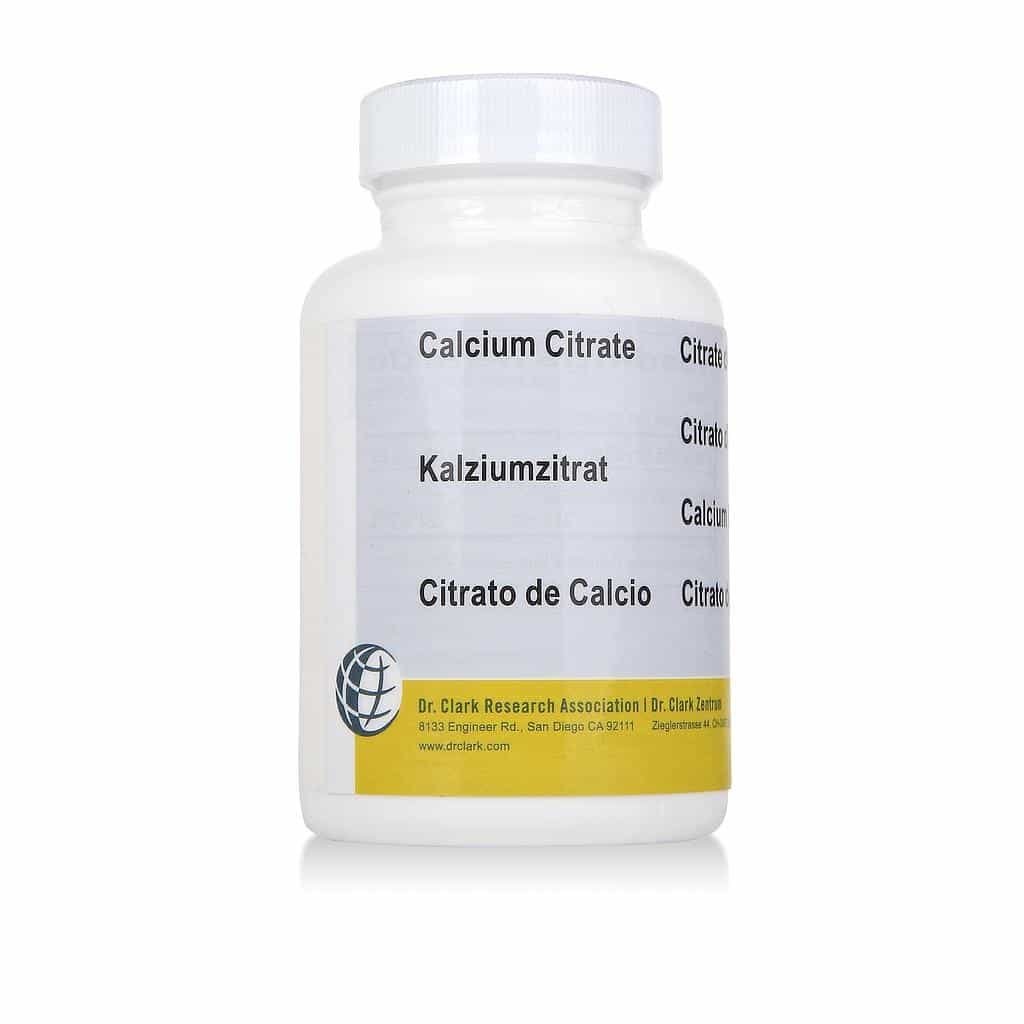No products in the cart.
Citrate de Calcium - Dr Clark
100 gélules de 690 mg
(soit 200 mg de calcium par gélule)
Citrate de Calcium- Etiquetage du produit
Supplément diététique / Complément alimentaire.
100 capsules de 200 mg chacune.
Adultes et enfants de 12 ans ou plus: 1 capsule quotidienne ou selon recommandation.
Précautions d'Emploi
Tenir éloigné des enfants.
Les suppléments diététiques/compléments alimentaires ne devraient pas être utilisés comme substituts à une alimentation riche et variée.
Ne pas dépasser la dose quotidienne recommandée.
Informations additionnelles:
Dose recommandée: 1 capsule par jour.
Nombre de doses recommandées par boîte: 100.
Montant par dose US RDA / UE RDA*:
Calcium (sous forme de citrate de calcium): 200 mg 20% / 20%.
* RDA = Apports journaliers recommandés
Autres ingrédients: Gélatine, amidon de maïs.
Fabriqué aux USA.
Poids nominal: 80 grammes.
Allégations de santé autorisées:
"Le calcium contribue à une coagulation sanguine normale."
"Le calcium contribue à un métabolisme énergétique normal."
"Le calcium contribue à une fonction musculaire normale."
"Le calcium contribue à une neurotransmission normale."
"Le calcium contribue au fonctionnement normal des enzymes digestives."
"Le calcium joue un rôle dans les processus de division et de spécialisation cellulaires."
"Le calcium est nécessaire au maintien d’une ossature normale."
"Le calcium est nécessaire au maintien d’une dentition normale."
Condition des allégations:
"L’allégation ne peut être utilisée que pour une denrée alimentaire qui est au moins une source de calcium au sens de l’allégation SOURCE DE [NOM DES VITAMINES] ET/OU [NOM DES MINÉRAUX] définie dans l’annexe du règlement (CE) no 1924/2006."
Remarque: Sur les nouvelles étiquettes l'étiquetage est aussi, maintenant, en français:
Rôle du calcium dans le corps
L'os est un tissu dynamique costamment déconstruit et néoformé.
Toutefois, avec l'âge, la destruction (ou résorption) osseuse devient prédominante, entraînant l'ostéoporose, un facteur de risque pour les fractures et les tassements de vertèbres. Un processus d'autant plus aggravé par le fait que l'organisme, en cas d"apport extérieur insuffisant, devra puiser le calcium - indispensable aux nombreuses fonctions de l'organisme - directement dans les réserves osseuses, fragilisant d´autant plus le squelette.
Selon les observations des nutritionnistes, les apports en calcium sont bien souvent insuffisants, en particulier chez les personnes âgées. Celles-ci assimilent, en effet, moins bien le calcium au niveau intestinal, alors que - justement - leurs besoins en sont accrus, du fait du vieillissement de l'os. La supplémentation en calcium peut être assurée par des compléments alimentaires contenant une source de calcium.
Il s'agit, le plus souvent, de carbonate ou encore de citrate de calcium. Le carbonate de calcium est souvent obtenu à partir de coquillages, de poudre d'os, de corail ou dolomite. Des “matières premières” certes d'origine naturelle, mais qui présentent le sérieux inconvénient, dans le monde "moderne", de pouvoir être contaminées par des métaux toxiques (métaux lourds) et autres polluants. Ils peuvent, de plus, être mal tolérés par certains êtres humains n'ayant, dans l'estomac, pas suffisamment d'acidité gastrique pour pouvoir les digérer, provoquant ainsi constipation et ballonnements.
Parfaitement toléré, au contraire, le citrate de calcium est, en dehors du calcium végétal, la source de calcium la mieux absorbée et la mieux assimilée par l'organisme. Il n'interfère pas, non plus, avec l'absorption d'autres minéraux (fer, magnésium, zinc) ou de vitamines (A, C, D).
Par ailleurs, la complémentation en calcium bénéficie à l'organisme tout entier. Présent dans presque toutes les cellules de l'organisme, le calcium permet aux muscles de se contracter, au cœur de battre (c'est aussi un muscle!), aux cellules nerveuses de communiquer (neuro-transmission), au sang de coaguler. C'est tout dire.







